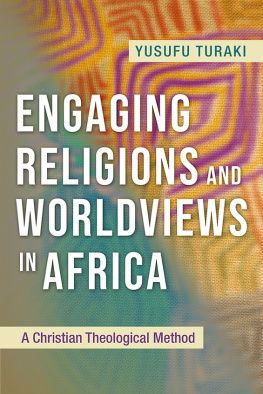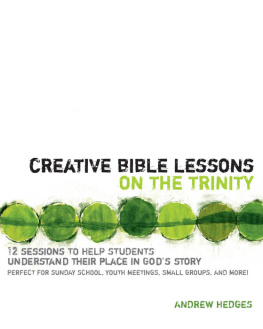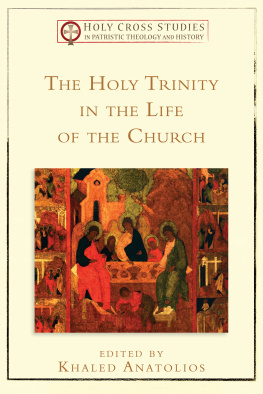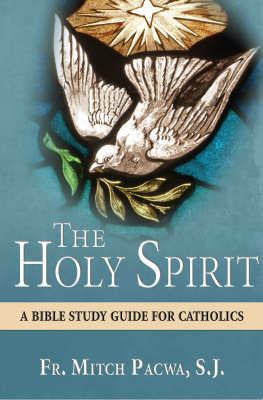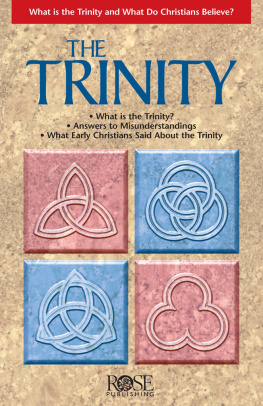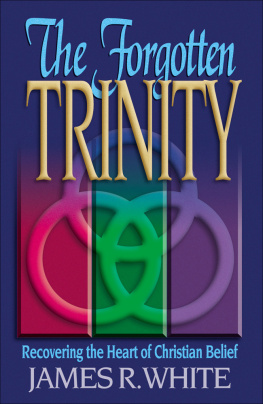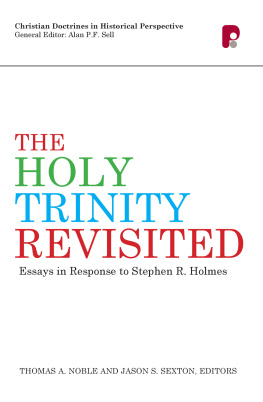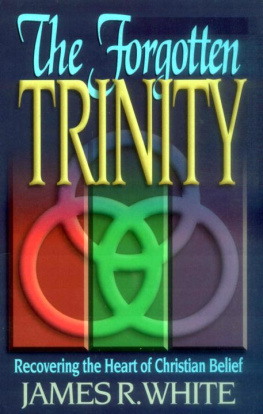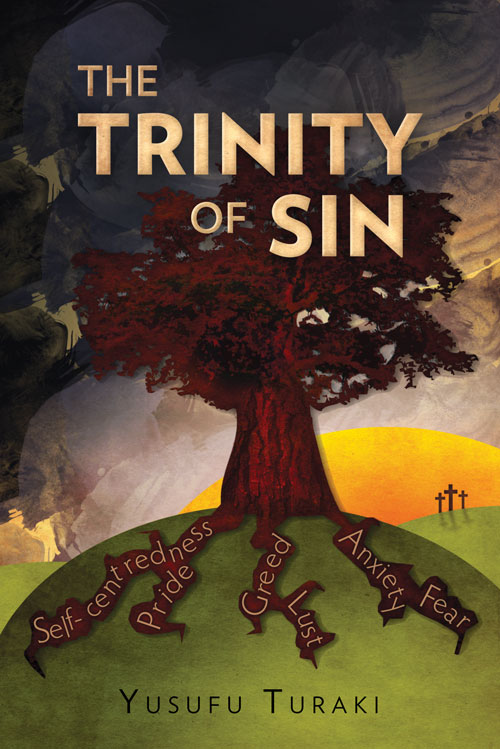M any African Christians cannot explain what sin is, how it affects humans and society, or how it came into the world. The best they can offer is a mix of popular opinions, traditional views and guesswork that falls far short of what Scripture teaches. Their confusion leaves them powerless to deal with sin and live a victorious Christian life.
My goal in writing this book is to address this confusion. Drawing on my understanding of Africas traditional beliefs and social and spiritual values, I will explain the scriptural teaching about sin and Gods solution to it in terms that make sense to Africans.
Take the issue of who is primarily responsible for bringing sin into the world. Some Africans blame humans. Some blame Satan. Some blame evil spirits and supernatural powers. Some even blame God. Confusion reigns. Yet the answer to this question is very important. If we know how sin first came into the world, we will have a better idea of how to deal with it.
Or think about the mystery of where sin comes from. Does it come from within us, or is it some outside spiritual power that attacks us? When we do not understand its nature we cannot respond to it. If we cannot diagnose a disease, we cannot prescribe the right medicine.
Ignorant of what the Bible teaches about sin, many Africans resort to traditional practices to deal with sin in their lives and communities and fail to distinguish between the works of sin and the works of demons. They try to exorcise sin because they see it as something to be cast out, not something to be put to death through the cross of Christ. Instead of recognizing that sin is rooted in our characters, they interpret it as demonic possession, occupation by an external being. The Western response to this is to deny the power of the demonic, but there can be no doubt that demons do exert a powerful influence but only where sin has given them a foothold. Once that sin is dealt with and removed, demons usually lose their influence.
Other Africans look for help in human philosophy or psychology. They interpret sinful attitudes, behaviours and practices as merely a matter of heredity or biology. And to a certain extent, they are right. A tendency to certain sins may run in a family, community, ethnic group or nation. Sin is spiritual and it exerts spiritual influence over individuals who live within a sinful environment. But sin is not simply hereditary; it also involves free will and choices. We cannot argue that because our stealing is hereditary we have no need to confess it is wrong.
In this book I will explain the origin and roots of sin; how it manifests itself in human nature; how it affects our behaviour, our communities and the world; Gods solution to the problem of sin; and how to apply the power of the cross and blood of Jesus Christ to the works of sin and flesh in the lives of believers, communities and the world.
These issues have been much discussed in classical theology and philosophy. But we will not be considering those ideas here. Rather, my desire is to present a scriptural explanation of the origin, nature, effects and power of sin in human nature and Gods solution to the sin problem within an African context.
In doing this, I will not be content to discuss sin only in general terms. That would be like describing a tree in terms of only the leaves, branches and trunk, without bothering to mention the roots. Our understanding of sin must go beyond describing the individual sins we can see or feel and must also identify its deep and hidden roots in self-centredness and pride, greed and lust, and anxiety and fear. We will see how the cross of Christ and the persons of the Trinity work together to give victory over each root sin.
Yusufu Turaki
Jos, Plateau State, Nigeria
October 2011
INTRODUCTION
S ome sinful habits seem not to go away, no matter how many times we confess them. This problem exists because we dont understand the impact, power and effect of sin in our life and lack biblical knowledge about how to apply the benefits of our redemption by Christ through the ministry of the Holy Spirit and the word of God. Some, like me, have been influenced by a cultural understanding of sin, others by false teachings or a lack of any teaching. Some of us struggle because we lump all sins together and have only one approach to dealing with them. Or we may fail to distinguish between our sinful acts, behaviour and attitudes on the one hand, and our inherently sinful nature on the other.
Before we look at these issues in depth, and at Gods solution to them, as revealed in Scripture, I would like to explain how I developed an interest in the subject of sin. I think that many of you will identify with my experience.
I began to be interested in the subject of sin when I was between five and seven years old. At that time my uncle, the Rev. Dawuda Som, introduced me to Jesus Christ and presented me with a very simple model of the Christian faith:
1. God is the creator of everything, including all human beings.
2. God is holy; he is without sin and never does wrong or make mistakes.
3. Human beings are all born sinners and do wrong.
4. God punishes those who do wrong by sending them into the lake of fire.
5. God forgives our wrongdoing and gives us eternal life if we believe in his Son Jesus Christ and confess and forsake sin.
6. Believers in Jesus must confess their wrongdoing every day.
7. Believers in Jesus Christ draw their strength and power from God through praying in Jesus name, reading or hearing Gods word, and being led by the power of the Holy Spirit.
This simple model laid the foundation of my Christian teaching, doctrine and theology, and has proved useful when I have been teaching young converts. But what gripped my mind as a child and a baby Christian was an overwhelming sense of the power of sin in my life. This realization drove me to confess my sins at the end of each day. I would review all that I had done, thought or said and ask God to forgive for all the wrongs I had committed.
But my childhood experience also led to doubts. I would see my friends who were still immersed in African Traditional Religion go off to a shrine clutching a chicken. On their return, I would see marks of blood on their forehead, hands, legs, chest and stomach. When I asked what this meant, they would say that the sacrifice of the chicken at the shrine had removed some wrongdoing, evil, sickness or bad omen. The blood on them would provide protection and ward off evil. I found myself asking, Why dont Christians have an effective way to ward off sin? If sin is dangerous because it sends people to hell, why isnt there a permanent cure for it? Why am I still struggling with sin?
My problem was that I was thinking about the Christian faith in the same terms as African Traditional Religion. I revered the word of God, the Holy Spirit and Jesus Christ as holy, but I expected the same sort of quick and magical response from God as from a witchdoctor or medicine man.
I have since discovered that I was not alone in thinking in those terms. Many Africans seek quick and easy answers in traditional religion. And Africans are not alone in this; people from other groups all around the world are no less eager for a magical solution to the problem of sin.


